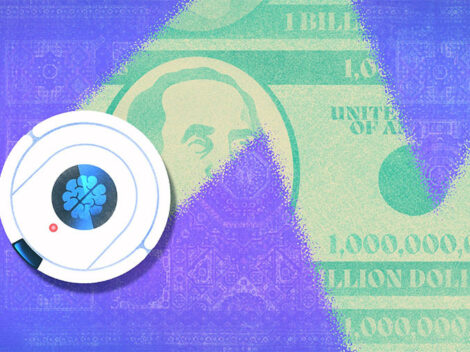Welcome to the end of the year. I hope your KPIs are full, your OKRs are wrapped, and your stretch plan has been met.
Today I want to make a number of predictions about technology companies and money that will turn out to be wrong and that I’ll regret making. But, it’s the holiday season, and who am I to not take part in Crunchbase News’s second annual Prediction week festivities?
What follows are various things that make sense to me today, with what is mostly available information as of mid-December. Of course, by February, I’ll hate this list and we’ll both make fun of it. Let’s go.
US Stock Market Outlook Stays Dim
As I write this on the 17th, domestic stocks just closed on a masterfully bad day. The Dow was off 507.53 points, or 2.11 percent. The S&P 500 left 54.01 points on the field, or 2.08 percent of its worth. And the tech-heavy Nasdaq ditched 159.93 points, or 2.27 percent. Those losses will probably bounce back as they have time and again this year. But I don’t see any reason why this year’s now-negative returns should be improved upon next year as the macro climate looks dim and the political climate worse. So, flat at best.
Supergiant Rounds Into Chinese Unicorns Slow
The staggering influx of capital into the Chinese startup scene will probably slow. Hell, just look at how much US money is chasing returns in China. That huge inflow is likely unsustainable. It looks like FOMO in dollar-form. And the other side of the FOMO coin isn’t JOMO (please!), it’s fear.
Uber Ends 2019 On Its $72B Private Valuation
We are staring down the barrel of an Uber IPO. Now just two questions remain. First, does Lyft get out first? And second, what’s Uber’s IPO price? There’s a lot of enthusiasm for Uber’s debut. After all, it’s going to attract endless media attention, the company has huge mindshare, and, perhaps, real growth ahead of it. But at net losses of over $1 billion quarterly as of Q3 of 2018, it’s hard to figure out how Uber can be worth more than the $72 billion it’s current price tag claims. Especially as its year-over-year growth rate slips.
Lyft Beats Uber To Public Markets
This guess answers our prior question. Lyft wants to get out first to set its own narrative. If Uber follows Lyft the larger company can still write its own story. If Lyft follows Uber, Uber’s saga will become the smaller company’s arc. That’s my read, and that’s why I think Lyft is going to get its S-1 public first and float ahead of its domestic rival.
Slack or Airbnb Stay Private
By that I mean that one of the two companies won’t go public in 2019. Both are expected to hit the S-1 button next year, but I doubt they both make it out unless the public markets prove astoundingly accommodative to decacorns. In that case, each of our two firms can get the price it wants and file. Make my day, Airbnb and Slack. Prove me wrong.
Crypto Doesn’t Rebound
Why would it?
Public Multiples For Cloud Stocks End The Year Lower Than They Start
This is slightly linked to my Uber and Airbnb-Slack guesses. Each of those, and this prediction itself, are predicated on the idea of a general market price correction. Venture activity might not slip in dollar or round terms, but I suspect that public multiples (ARR multiples, and the value of other tech top lines) will contract, impacting private multiples as well. Why? Because historically normal valuation expectations would be viewed today as shockingly bearish. And no amount of ARRG-ing your way out of that discrepancy will help when sentiment inevitably shifts.
Mediocre Startups With Nine-Figure Valuations Begin To Fail
I have a hunch that, among all the strong companies out there building material revenue, there exist a healthy percent that aren’t. And those firms are going to struggle when — pick your analogy — winter comes as the tide goes out and someone isn’t wearing a bathing suit in the snow.
So What?
There’s my list of, it turns out, mostly pessimistic takes. Why so negative? Because this party has been rolling along for so long now, Douglas Adams wants his bit back. And when things are too good, for too long, they tend to correct.
But I’m probably going to be wrong, again, on that view as it was popular back in 2014 (read this, this, and this), and 2016, and both times I thought that the bear’s call was the correct note to sound.
It wasn’t.
Bulls ran straight through all that yucky pessimism, and startups managed to keep raising while public tech companies soared. Sure, liquidity was still a bit weak, but even that got better in 2018. So I doubt that I’ll be right this time, unless I am, in which case I’m really sorry.
Happy 2019!

Stay up to date with recent funding rounds, acquisitions, and more with the Crunchbase Daily.







![Illustration of a guy watering plants with a blocked hose - Global [Dom Guzman]](https://news.crunchbase.com/wp-content/uploads/quarterly-global-3-300x168.jpg)
67.1K Followers